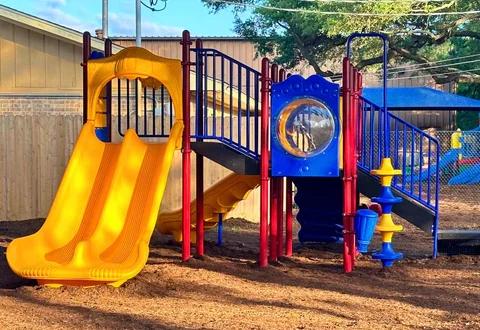The emotional growth of a child is as important as its physical or academic development. Children who feel understood and emotionally safe are more able to build relationships, solve problems and explore the world confidently.
Here are 10 practical tips for supporting young children’s mental health.
1. Recognize Their Feelings
Don’t ignore the emotions of children who are upset. Validate the feelings of children.
Try saying, “I see you are feeling sad. It’s ok to feel this way.”
“You’re frustrated – that was hard.”
It helps children identify and manage their emotions.
2. Offer Physical Comfort
Hugs, soft touches and sitting close can reassure and create a feeling of security.
Tip: Even older children benefit from lap time and cuddles.
3. Set clear and calm boundaries
When rules are set up lovingly but with firmness, children feel more secure. Stay calm, even during a meltdown.
Say:
“I won’t let you hit. We’ll find a way to express your anger safely.
4. Creative outlets for emotions
Before they can speak, children often express their emotions through music, art or play.
Offer:
- Crayons, paper and crayons
- Animals or puppets that are stuffed
- Music and Movement Time
5. Read books about feelings
Use stories to discuss emotions and cope. You can ask questions such as:
“How did the character feel?”
“What would you have done if this happened?”
6. Teach Simple Calming Tools
Even toddlers who are prone to tantrums can be taught to calm down through practice.
Try:
- Deep breathing (smell the flowers, blow out the candles)
- Squeezing the stress ball
- Counting slowly to five
7. Be patient with big feelings
Learning is a process that includes tears, meltdowns and other emotional outbursts. You should respond with, not punishment.
Tip: Remain calm and nearby. Offer a place for the group to regroup.
8. Praise Emotional Development
Children who calm down or use words rather than actions deserve to be praised.
Speak:
“I saw you taking a deep breathe instead of yelling – that was great!”
9. Listen without Fixing Right away
Some children need to be heard and not corrected.
Try:
“Tell me what happened.”
“I’m here for listening.”
10. Be an Example
Children learn by watching adults. Adults teach children how to behave emotionally.
Use phrases such as:
“I’m feeling frustrated, so I will take a deep breathe.”
Final Thoughts
Supporting children’s emotional growth helps them develop the skills they need to succeed in life, such as resilience, empathy and communication.





